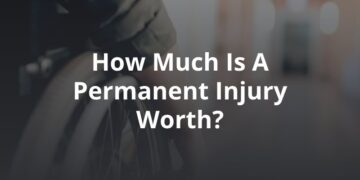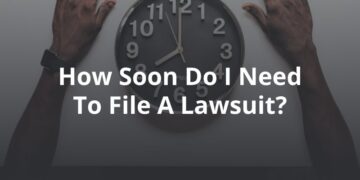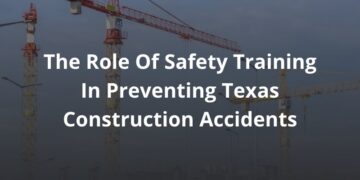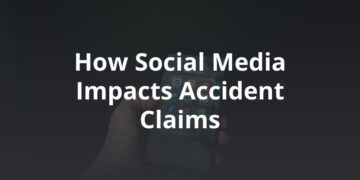When it comes to recovering from your losses, getting the best care possible and the information you need to fight for your claim starts just moments after impact. In those first moments after you’ve been in a collision, a million thoughts might go racing through your mind — or perhaps none at all.
At some point, though, you’re going to find yourself wondering, “What just happened?” When you’ve been in a serious car accident, it’s not always evident at first exactly how the crash occurred — regardless of whether it takes a second or a full investigation to prove. When you’ve been the victim of another driver, Texas law gives you options for seeking recovery.
What should I do at the scene of my car accident?
In any crash situation, the first priority is everyone’s safety. That includes the people involved in the crash, passers-by, and first responders. If you are able, the first steps immediately after a collision are:
- Check yourself and others for injuries.
If people are hurt, tend to them the best you can, but do not move anyone who appears seriously injured. If you are in doubt, do not move any injured person. Talk to them, let them know who you are and what happened, and let them know that help is on the way. - Call 911 for help.
Even if you think your accident is not serious, the purpose of calling 911 is to request help, and you should always request help after a crash. Trained first responders can assess everyone for injuries, and the responding police will file the crash report with the Texas Department of Transportation (TxDOT) you will likely need for insurance or even a lawsuit. - Move your car out of the roadway.
Some people mistakenly believe it is a crime to move a vehicle that was in an accident. In fact, Texas law requires drivers of each vehicle to move stalled or crashed vehicles off the highway if they are able to in order to reduce congestion and make the roadway safer for everyone. - Note driver and scene information.
Chances are you may be pretty shaken up, but if you are able, note any significant signage or mile markers and take pictures or write them down once you have moved safely away from the road. You may have already gotten information about your location to provide to 911, but now you should note any details of the vehicles’ positioning, the other driver’s behavior, and any other details that seem to stand out to you. Any small detail might end up being significant. Jot down other license plates, names you hear other drivers, passengers, and witnesses calling each other, and any other information that might help you identify who was involved should they be needed down the road.
What kind of witness information is valuable in a car accident?
If you suspect the other driver may be impaired, communicate that information to law enforcement at the scene. We know it can feel really uncomfortable to suggest something like that about another person who may also be injured or shaken up, but it’s important that all evidence is collected as quickly as possible.
The same rule applies for any suspicious behavior you might have witnessed, such as the driver of passengers of any other vehicle involved seeming to hide or dispose of anything. In some cases, you may even notice that the person who identifies themself as the driver of a vehicle to law enforcement is not actually the person you saw driving. This is valuable information, and the sooner you communicate it to law enforcement, the better.
You are not the accident investigator, but you are a valuable witness with potentially a lot riding on the investigators having the most accurate information. You don’t have to point an accusatory finger or tell police you know exactly what happened, but you can indicate when something seems off.
There are a lot of steps, and a lot of things to consider, about how to best handle a car accident. Most people will never remember them all. Just do your best to take care of yourself and others, and try to stay as calm as possible given the circumstances.
What do I do after a car accident that wasn’t my fault?
- Seek medical attention.
Regardless of who’s at fault, you should always see a doctor after your accident, immediately and for a follow-up according to the doctor’s suggested timing. The severity of your injuries — especially head or spinal injuries — may not be immediately obvious. Some people may start to realize something is wrong but try to ignore the symptoms and get back to their lives. Having medical documentation from the beginning is crucial to being able to accurately document the cost of your injuries for insurance or a jury. - Call an attorney.
When you are not at fault, the next step is to speak to a car accident attorney, even if you don’t think you have a case or want to sue, and even if you think you can’t afford an attorney. Even when calling an attorney seems like one more thing to do on top of the mountain of other things you need to do, an experienced injury attorney can educate you about your rights and options, which can make the stress of your crash a little more bearable. A lawyer can’t take away what you have to deal with, but it can help to have someone at your side who knows what you’re going through. - Deal with insurance.
Texas is a tort state rather than a no-fault state, which means that the person who is at fault in the accident is financially responsible for the damages caused — and so is their insurance company. Even so, you should call your insurance company as soon as possible to report what happened. While insurance companies may be notorious for trying to avoid big payouts, when you are not at fault, this can work in your favor. Your insurance company will throw their weight and their investigators behind proving the other driver or drivers are liable. However, it’s important to know you should never give a recorded statement to anyone, even your own insurance company, before talking to a lawyer.
What’s the process of recovering losses like?
When insurance won’t pay or doesn’t cover the amount of damages you suffered, the process of recovering damages through a lawsuit may be your next option. The exact details of how your accident will be investigated and fought by your legal team will depend on the specific circumstances, such as if you were in fact hit by a drunk driver or if the driver who hit you was in a commercial vehicle.
No matter what, your lawyer will dig in to uncover every possible factor that may impact your case value, including:
- Driver phone records
- Witness statements
- Driver actions before the crash
- Driver behavior after the crash
- Past criminal or crash history
- Laws broken during the crash
- Past, current, and future medical bills
- Pain and suffering
- Punitive damages
The goal of an accident claim isn’t to make a buck off your suffering, but to give you a voice. Even a seemingly minor injury can have long-lasting effects, such as a broken wrist crushing hopes of being a surgeon or a broken leg ending a promising dance career. Most drivers who cause crashes never intend to harm another person — but that doesn’t make them less legally responsible for your losses.
How can an attorney like FVF help?
We won’t take a case if we don’t believe it’s worth it for you to hire a lawyer, but even if we don’t represent you, information and education are two of the strongest tools you have when it’s time to take back your life after an accident. Contact us today to talk to an experienced car accident attorney.









